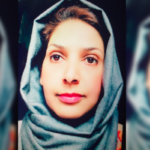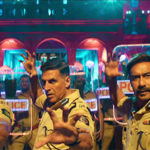Mahatma Gandhi’s last 15 months were consumed in running from pillar to post to restore peace and sanity in one scene of communal savagery after another. Seventy-seven-year old Gandhi’s run began in November 1946 with a dash to far-off Noakhali where the Hindus had been the target of Muslim mob fury. Even as he was working to bring the Muslim-majority Noakhali back to peace – which to him meant ‘bringing the hearts of Hindus and Muslims together’ – violence broke out in Bihar to avenge Noakhali.
That was a big blow to Gandhi’s peace effort. He was working in Noakhali to set an example to the rest of India. Instead, brutal violence had broken out against the Muslims in a province which was under the rule of his own Congress party. Gandhi’s worries about Congressmen apart, even his work in Noakhali was adversely affected by the crescendo of angry Muslim taunts that he, a Hindu, was staying on in Noakhali and not rushing off to save the Muslims of Bihar.
Gandhi braved the taunts and argued that peace in Noakhali would produce peace elsewhere. More than that, he had faith that the Congress ministry in Bihar would act decisively and bring the situation promptly under control.
That did not happen, and even some Congressmen were behind the violence. Eventually, Dr Syed Mahmud, the Congress’ own minister of development, sent Gandhi an SOS, saying he alone could save the Muslims. Gandhi now had to dash off to Bihar, this time hoping that peace in Bihar would produce peace elsewhere. Virtually the whole of March 1947 – the last March of his life – Gandhi toured the affected towns and villages, pouring his heart out, drawing upon his grand moral capital to cleanse people of mutual hatred.
Also read: Gandhi Will Have to be Killed, One More Time
Noakhali and Bihar happened in the months preceding the country’s Partition and Independence. Gandhi’s predicament remained the same even in the five and a half months that he was permitted to live in independent India. He was heading for Noakhali, now in Pakistan, on the eve of independence when he was stopped in violence-hit Calcutta. With peace restored in Calcutta, he was on his way to the Punjab when he was stopped in violence-hit Delhi. In both Calcutta and Delhi he was forced to resort to a satyagrahi’s last weapon – fast unto death – because nothing else worked.
In Delhi even his fast unto death was misunderstood. He was pointedly asked if his fast was not for the Muslims of India. The question was in fact an insinuation which reflected a mentality that has since spread deeper and wider. Gandhi accepted that his fast was for the suffering Muslims of India. But he added that it was also for the suffering Hindus and Sikhs of Pakistan.
There was another question that confirmed how little people had understood – let alone imbibed – Gandhi’s spirit. He was asked:
Your fast has been undertaken on the eve of the meeting of the United Nations Security Council and so soon after the Karachi riots and Gujarat [Pakistan] massacre. What publicity the latter incidents received in the foreign Press is not known, but undoubtedly your fast has overshadowed all other incidents and Pakistan representatives would not be worth their past reputation if they did not seize the opportunity to declare that the Mahatma has undertaken the fast to bring sanity among his Hindu followers, who have been making the life of the Muslims in India impossible.
Truth takes a long time to reach the four corners of the globe. But in the meantime your fast may have the unfortunate effect of prejudicing our cause in the eyes of the United Nations.
Gandhi had not counted on that happening, but it is worth noting that speaking on Kashmir in the Security Council, what Sir Muhammad Zafarullah Khan said was that “a new and tremendous wave of feeling and desire for friendship between India and Pakistan is sweeping the subcontinent in response to the fast”.
Gandhi had once asked his dear friend Charlie (C.F. Andrews): “Can a man do more than give his life?” What, we may ask, was it in those tragic five-and-a-half months that prompted Gandhi to risk his life? The answer lies in the following profoundly despairing comment about us. He said: “Hamare mein shayad hriday hahin hai (We don’t, perhaps, have a heart).”
Day in and day out Gandhi exhorted people to be sane and humane. To no avail, tempting him to stake his life. Just in case.
Though the fast just about succeeded, the questions asked about it revealed deep incomprehension of what Gandhi wanted his people and his country to be. But that was not the worst the sad old man had to endure during his final fifteen months. Unbelievable though it may appear, a public statement he had issued from Noakhali was used in Bihar to incite violence against the Muslims.
Gandhi was enlisted against Gandhi.
What was then done in Bihar is now being done in India; this time not by some miscreants operating in anonymity, but by the highest functionaries of the country’s democratically elected government, by people writing signed articles, and by the country’s best newspapers offering their columns for the egregious diminution of this apostle of love, peace and non-violence.
Also read: Hindutva Leaders Revile Gandhi and His Message, But Can’t Resist Basking in His Glory
Our best Gandhi scholars, such as Rajmohan Gandhi and Ramachandra Guha, have exposed the mendacity of the government’s blanket assertion that its Citizenship Amendment Act is in fulfilment of Gandhi’s ideas. The great merit of such assertions is that they can be just ipse dixit, requiring no proof, with a high probability of acceptance by credulous, like-minded people. But there also are brave loyal enthusiasts rushing in to provide proof where none exists.
One such enthusiast recently came up with an article titled ‘Misreading the Mahatma: Those opposing CAA-NRC are doing disservice to Gandhiji’s worldview.’ Published in the Indian Express on February 20, 2020, the article is by one Shrikrishna Kulkarni. He is a stranger to scholarship on Gandhi. Stranger as much on account of his absence from among Gandhi scholars as his glaring unfamiliarity with the relevant literature. But he pronounces with supreme authority. Maybe because he is, biologically, a great grandson of Gandhi. That makes him Rajmohan Gandhi’s nephew.
This reminds me of my own nephew, a dealer in medicine, who once told me off: “Tauji, you don’t understand history. These Muslims…”
I am in illustrious company. Presiding over us all is Gandhi. For, like the Grand Inquisitor in The Brothers Karamazov giving Christ a lesson in Christianity, our nephews – echoing our rulers – would happily tell Gandhi himself what he thought, did and said. They would tell him what Kulkarni tells us:
“Gandhiji had much to say about the post-Partition plight of Hindus and Sikhs in Pakistan and the need to secure justice from Pakistan.”
They would quote him to him, as Kulkarni does to us when he quotes Gandhi as saying on September 25, 1947: “To ensure the safety of the Hindus and Sikhs in Pakistan was the duty of the Indian Union Government. But for that the Government should be given a free hand and should receive the full and sincere cooperation of every Indian.’ (It is unclear whether the emphasis is Kulkarni’s or Gandhi’s.) And, further, on 26 September: “… if Pakistan persistently refused to see its proved errors and continued to minimise it, the Indian Union Government would have to go to war with it.”
The masquerade of quotation marks and exact page numbers notwithstanding, Kulkarni’s claim has no basis, and his quotations are so doctored as to produce an effect that is at variance with Gandhi’s spirit and meaning, indeed with everything he lived and died for. Take, for illustration, the quotation relating to September 26. It is taken from Gandhi’s prayer discourse of that evening.
The discourse opens with the melancholy statement: “This that is going on is not Sikh dharma, not Islam, not Hindu dharma.”
It is a warning and a plea to all the communities and to both India and Pakistan. It is within this context that Gandhi says by way of a hypothetical worst case scenario:
“I said if we think, if it is completely proved to us, that we can never obtain justice from the Government of Pakistan – if they do not on their own admit that they have committed any wrong – if you cannot explain to them, then there is your Cabinet, it is a big Cabinet, there is Jawaharlal in it, Sardar Patel is in it, other good men are in it, if even they cannot persuade them [Pakistan], then at last we will have to fight. We must settle in a friendly manner. Why can’t we do that?”
One is seized with shame and humiliation to have to save Gandhi from being vanadalised – yes, that is the term – by his own people.
Gandhi – that is the basic truth – never made any distinction between India and Pakistan: “I do not think of Pakistan and India as separate countries.”
Also read: Even in Gandhi’s Resolutely Examined Life, There Is Something Inaccessible
He could, the way he was made, never think of either in isolation from, or at the expense of, the other. Neither, he warned, could be a heaven if the other became hell. As for countenancing war with Pakistan – Kashmir notwithstanding – he never tired of stressing that the well-being of India and Pakistan was indivisible. Mutual enmity would cause mutual destruction. War would ruin both.
Gandhi feared for the Hindu and Sikh minorities in Pakistan. But so he did for the Muslim minorities in India. Both countries, he knew, were surpassing each other in harassing and persecuting their minorities.
“Today,” he said on November 19, 1947, “this accusation must be levelled against all Hindus and Sikhs just as in Pakistan it must be levelled against all Muslims.” He whose heart bled as much for Noakhali as for Bihar, he could have seen, thought and spoken only thus. Unblinded by communal-national blinkers.
Compare what Gandhi is said to have said on September 25 and 26, 1947, with the following from his prayer discourse a few days earlier, on September 17:
“You cannot get justice by being unjust to Muslims. That apart, if it is true that the minorities in Pakistan, i.e., Hindus and Sikhs, are treated very badly, it is equally true that the minorities, i.e. Muslims, in East Punjab have also been treated badly…. A common way for both states to arrive at a proper settlement is that both parties acknowledge their fault with all sincerity and conclude a mutual agreement. If they are unable to reach an agreement then as per universal practice they can take recourse to a settlement through arbitration. Other than this, there is the savage way of war. I find the very thought of war abhorrent.”
Where do you hear the sorrowing old man? Is he not telling you – us – something that we need to heed urgently today?
Sudhir Chandra is the author of Gandhi: An Impossible Possibility and The Oppressive Present: Literature and Social Consciousness in Colonial India (both published by Routledge).




